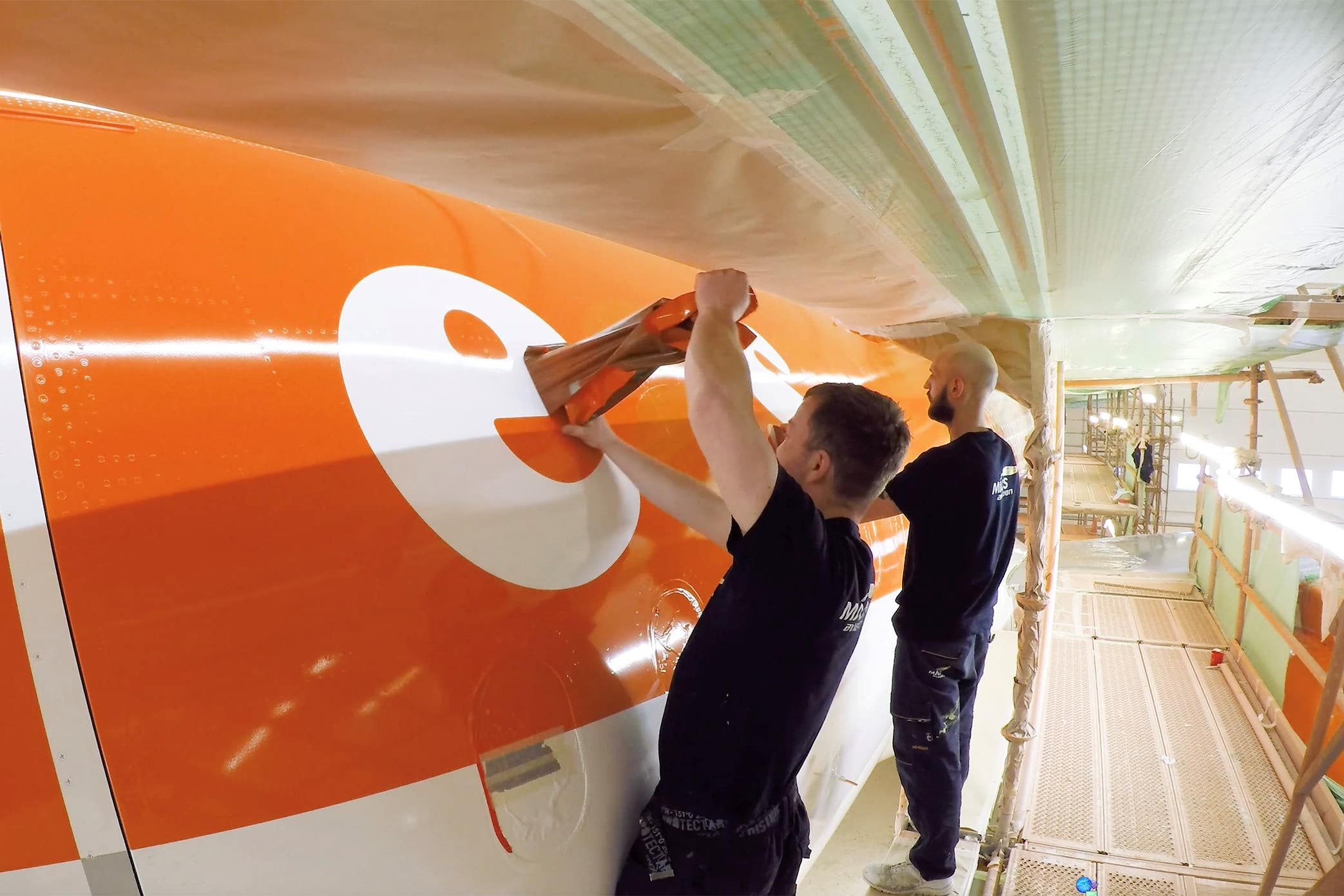EasyJet finds way to make its planes even lighter – and it doesn’t involve luggage
The company has discovered a method to reduce the weight of its aircraft even further - using less paint.
The budget airline giant has claimed to be the world's first airline to make use of a new lighter weight painting technique to reduce its aircraft's fuel consumption.
and white livery.
This ground-breaking method, created in collaboration with Mankiewicz Aviation Coatings, simplifies the painting process, needing fewer coats to achieve British Airways' distinctive orange and white colour scheme.
The plane is fairly light weight at about 27kg, and EasyJet points out that this is part of their wider effort to reduce fuel usage across all their aircraft. Every kilogram saved means a cut in fuel consumption, which in turn leads to a smaller carbon footprint.
Developed in partnership with Mankiewicz Aviation Coatings, a multinational company, the technique has now been trialled on 38 easyJet aircraft.
EasyJet believes it will result in an annual fuel saving of 1,296 tonnes once the fleet-wide rollout is finished by 2030.

EasyJet's director of sustainability, Lahiru Ranasinghe, pointed out that the airline is "always searching for and improving innovative solutions to reduce the effects of our operations".
One component of a broader strategy, we've collaborated with Mankiewicz Aviation Coatings to develop a new, lightweight paint, demonstrating our thorough examination of our entire operation to identify measures that will enable us to achieve our ultimate goal.
In 2022, easyJet committed to an objective of reducing their carbon emissions per passenger journey by 35% by 2035 relative to 2019 levels.
The company reported in September that its progress had resulted in a 5% improvement, with the majority of this achieved by operating more fuel-efficient aircraft.
The UK Government's sustainable aviation fuel (Saf) requirement took effect yesterday.
As per legislation, Saf must comprise at least 2% of all jet fuel utilised in flights departing from UK airports by 2025.
The figure is forecast to increase by a percentage annually, with estimates suggesting it will have risen to 10% by 2030 and 22% by 2040.
Saf is regarded as essential in decreasing the carbon emissions of the aviation sector.
The fuel is manufactured from materials such as agricultural waste and used cooking oil, so its production entails utilising roughly 70% less carbon emissions than conventional jet fuel, which is a form of kerosene.
The Government has also proposed the establishment of a new entity with a goal of enhancing flight route configuration.
Transport officials think letting planes use current navigation systems will make air travel more efficient, such as by stopping aircraft from having to go into holding patterns before getting permission to land at big airports.
EasyJet stated that poor utilisation of air traffic control routes leads to wasted fuel, increased emissions and longer flight durations.
The provider of the carrier described the problem as a "universal issue" affecting the entire continent of Europe, but stated that the "greatest inefficiencies" encountered by its operations are within the UK.
.
Post a Comment for "EasyJet finds way to make its planes even lighter – and it doesn’t involve luggage"